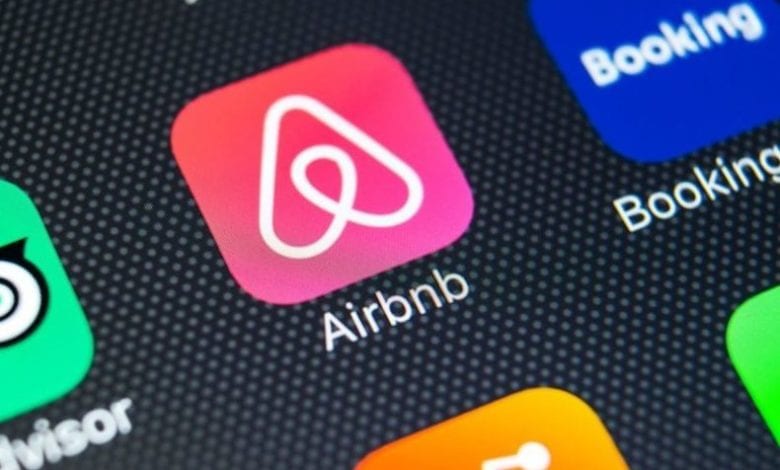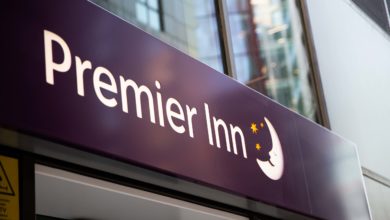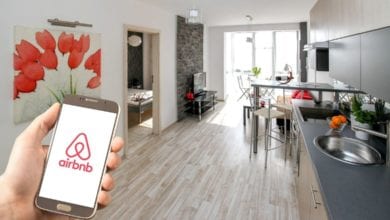When an inspector calls: What does greater Airbnb verification mean for the hotel sector

At Halloween, disaster struck as a publically-bookable, large capacity house in America turned first into a party zone and then a tragic murder site, as five were shot dead at the party.
The house was originally rented through the Airbnb platform, but naturally the guests didn’t disclose they would be hosting an ‘anyone-welcome’ house party. Understandably this heartrending incident has brought the question of responsibility to the fore. Who is responsible – the guest for misusing the listing, Airbnb for not having great enough controls, or the owner for not having policies and preventative measures in place to stop this type of thing happening?
Despite the obvious tragedy, I think this question is somewhat unfair to all those involved, and perhaps from a commercial perspective focuses too much on the incident and not enough on the constructive solution. Yes, the incident itself needs to be dealt with, but there are legal and criminal channels for that.
When it comes to the wider industry however we can gain much more by focusing on this as a catalyst for change than we can for opting into the blame game. What’s more, the emphasis of the question is wrong – it focuses on what should hopefully be an isolated incident – tragic deaths in a rental space – and not on the wider issue of the collective but less morbid incidents which happen across the sector every day.
Airbnb has, in my view, done what any brand should do in the wake of a crisis like this; they have made commitments to change and improve and they have outlined exactly what that will be.
Whereas before the brand has separated themselves from responsibility to either the owner or the guest, on the basis that they are a booking service provider and not a property manager, they have reneged somewhat on these previous assertions and have now committed to enhanced checks and controls including listing verification (to prevent rogue / non-existent listings) by December 2020, providing a telephone line for guests and neighbours in the event of emergencies, and adding a guest guarantee.
Quite how this will reduce the risk of misuse of large properties is questionable, but this is at least a much-needed step in the right direction. What does remain to be seen however is what impact these measures will actually have and what they will do to address the incidents, not least because much of the process will be based on ‘trust’ and the use of consumer reviews to validate that trust.
So what does this have to do with hotels and the hospitality sector?
At first glance, nothing. Speak to most in industry and they consider the sharing economy as a completely separate entity, aside from perhaps the fact it has captured some of the market and increased competition.
Looking more in depth and I think that this has everything to do with the hotel sector and highlights a much bigger challenge that we as an industry will need to embrace to resolve. Quality in Tourism assess hundreds of hotels, B&Bs and unique accommodation providers every year and we see some of the very best and very worst practices in the sector.
What this highlights is that the “incidents” are not isolated to the sharing economy with the same complaints cropping up across home stay providers, B&Bs and hotels.
There is a definite problem in accommodation across all types of operators; some providers are not operating as they should be while some are excelling. True, there needs to be space for individual practices and cultures, but at the very least the basics need to be standardised across all operators and we need a level playing field.
We recently commissioned a survey with OnePoll, questioning 2,000 people who have stayed away from home in the last twelve months. The findings were somewhat unexpected in their strength, reinforcing that there is a public assumption that all operators are already held accountable and operating to the same level.
In fact, almost 73% believe that there is already mandatory regulation and standards in place, and when they found out that there isn’t regulation across the board, 83% confirmed that they believe there should be regulation.
Whatever your own opinions, we believe that there is value in mandatory accountability, recognising the already very good professional operators of the industry and protecting the consumer, but also raising standards too and bringing up the standards of the poor operators which exist.
Ours isn’t the only study to highlight this belief either. One independent report we found was made by a disgruntled guest who tallied and categorised over 1,000 complaints made globally against sharing economy rentals. It found that in 20.5% of cases the host cancelled the stay; 13.4% cited unsafe conditions including bug infestations, unsafe / broken amenities, hostile or intimidating hosts and hidden cameras in the bedroom; and 12.2% said it was ‘Not as Described’ including photos not matching reality, location not correct, missing amenities, and the room not being clean.
These complaints of course make up less than 1% of global stays, something reinforced by Airbnb who say there are 2 million stays per night which pass “without incident”, but these are just the tip of the iceberg. No guest should have to put up with these types of conditions, regardless of where they choose to stay and many of the same complaints, particularly those around amenities and cleanliness are often levelled at poor hotel operators too.
Similarly, a recent survey by Proctor & Gamble highlighted the value of standards with 72% of guests citing that they would leave a negative review if their room was unclean, regardless of the other luxuries they receive.
For many, this is enough to argue that it is consumers that hold businesses to account and that therefore regulation is not required, but last time I checked schools weren’t teaching Health & Safety, Fire Safety or Food Hygiene to its pupils, so therefore how is the guest supposed to know what to look for, and how are they supposed to ‘independently review’ their findings – unless of course the worst happens and someone is injured or killed as a result of non-compliance.
What we are therefore advocating is an approach to professionalise the sector, in the same way, in every location and for every accommodation provider. This isn’t about who is a better or worse provider (although that can be calculated through the star grading) but about the minimum standards of safety that consumers can and do expect. What’s more, it’s time that this rolled out equally across all providers, regardless of their business model.
If you accept money from a stranger to stay in your property, then you bear the responsibility for making sure they do so safely. In the sharing economy for example, 30% of properties available are run by professional operators, but the rest are people who are renting spare rooms to boost their income.
There is no malice in my statement and I don’t think this is a bad thing inherently, but I do think that those boosting their income are often focusing on the monetary outcome in the short term, and so don’t properly account for consumer safety because they just don’t realise they need to.
To me, there are plenty of aspects, backed by British law, that are necessary and there should be no loopholes available to omit them. Everything from Health & Safety to PCI compliance, Food Hygiene to Fire Safety should all be independently verified.
One final point; I think now is the time for hotels to step up and lead the sector rather than lagging behind. Airbnb’s commitments are likely to create a domino effect with other operators and it would be nice if hotels were at the forefront of implementing change and not the follower to a market disruptor.
Deborah Heather, Director of Quality in Tourism









